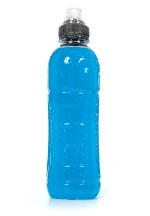 The debate about energy drinks continues with the International Society of Sports Nutrition (ISSN) weighing in on the issue. The esteemed Society has based its opinion about energy drinks on a critical analysis of the literature on the safety of the use of energy drinks or energy shots.
The debate about energy drinks continues with the International Society of Sports Nutrition (ISSN) weighing in on the issue. The esteemed Society has based its opinion about energy drinks on a critical analysis of the literature on the safety of the use of energy drinks or energy shots.
So here are the recommendations of the ISSN:
–Although energy drinks and shots contain a number of nutrients that are supposed to affect mental and/or physical performance, the primary performance-boosting nutrients in most energy drinks and shots appear to be nothing other than carbohydrates and/or caffeine.
–The value of caffeine in mental and physical performance has been well-established, but the potential benefits of other nutrients contained in energy drinks and shots remains to be determined.
–Consuming energy drinks 10-60 minutes before exercise can improve mental focus, alertness, anaerobic performance, and/or endurance.
–Many energy drinks and shots contain numerous ingredients; these products in particular merit further study to demonstrate their safety and potential effects on physical and mental performance.
–There is some limited evidence that consumption of low-calorie energy drinks during training and/or weight loss trials may promote a small amount of additional fat loss. However, higher-calorie energy drinks may promote weight gain.
–Athletes should consider the impact of ingesting high glycemic load carbohydrates on metabolic health, and blood glucose and insulin levels, as well as the effects of caffeine and other stimulants on motor skill performance.
–Children and adolescents should only consume energy drinks or shots with parental approval after consideration of the amount of carbohydrate, caffeine, and other nutrients contained in these liquids and a thorough understanding of the potential side effects.
–Frequent use of energy drinks or shots, especially if more than one serving per day is consumed, may lead to adverse events and harmful side effects.
–Diabetics and individuals with pre-existing cardiovascular, metabolic, kidney, and/or neurologic diseases who are taking medications that may be affected by high glycemic load foods, caffeine, and/or other stimulants should avoid use of energy drinks or shots unless approved by their physician.
For more on the possible negative health effects of consuming energy drinks, read about the eight health risks of energy drinks.
Sources for Today’s Articles:
Five More Reasons to Avoid Energy Drinks
Campbell, B., et al., “International Society of Sports Nutrition position stand: energy drinks,” J Int Soc Sports Nutr. January 3, 2013; 10(1):1.
